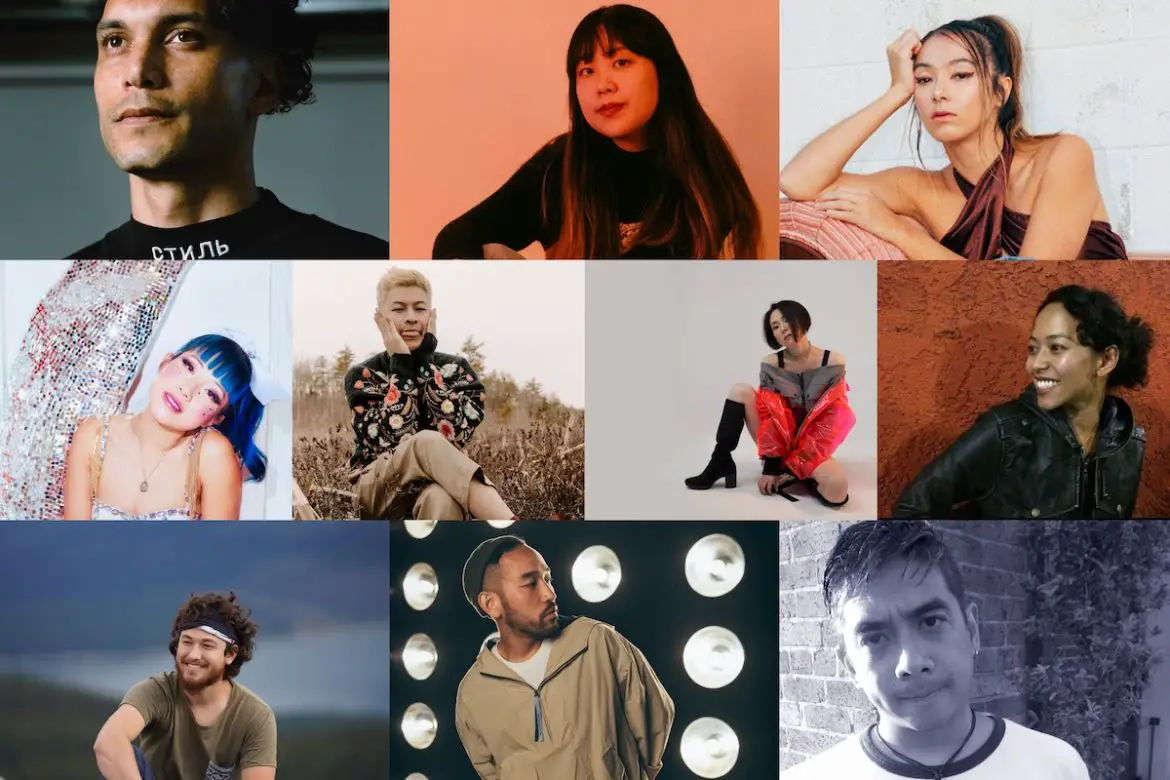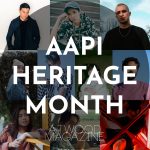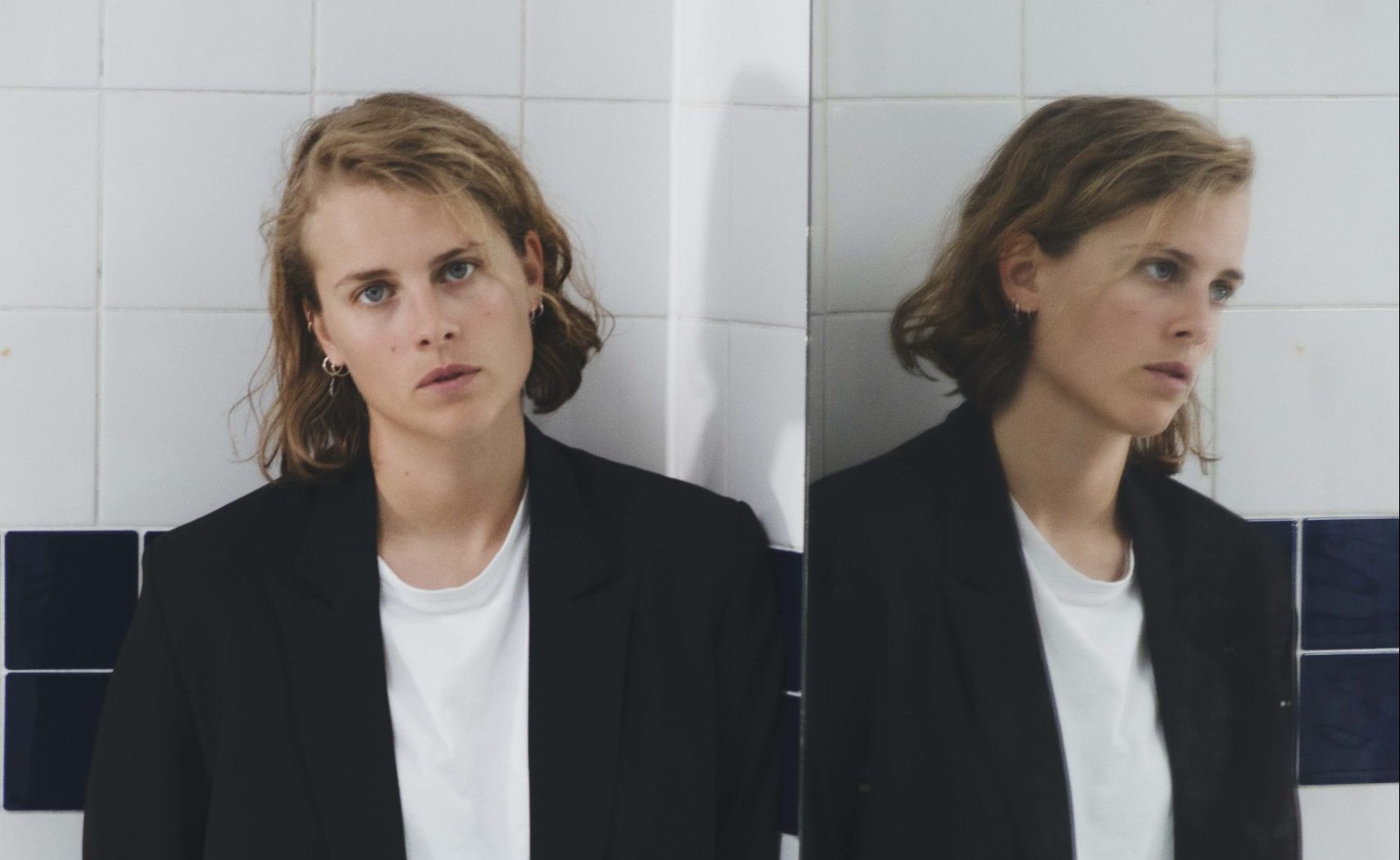In honor of Asian American and Pacific Islander (AAPI) Heritage Month, Atwood Magazine invited AAPI artists and music industry representatives from around the world to participate in an interview series reflecting on identity, music, culture, inclusion, and more. Today, and throughout the month of May, Atwood Magazine will be continuing those conversations in celebration of AAPI Heritage Month, engaging with artists and publicists alike to discuss the roles of heritage and representation in their own art, the state of the music industry, and its role in promoting diversity, visibility, equality, and more.
In Part I of our series, Atwood Magazine spoke with and highlighted 10 members in the industry, asking them to reflect on their own heritage, the relationship between music and identity, AAPI artist inspirations, and how we can challenge the music industry for better representation
– Mitch Mosk, Editor-in-Chief
•• •• •• ••
featuring Penny Palmer, Anakim, Hollis, lewloh, Rey Roldan, POLARTROPICA, Didi + Ping, Shihori, Victoria Park, and Pat Lok!
•• ••
:: Celebrating AAPI Heritage ::
 follow our AAPI Heritage Month playlist on Spotify
follow our AAPI Heritage Month playlist on Spotify 
:: Penny Palmer, Publicist, Nettwerk Music Group ::
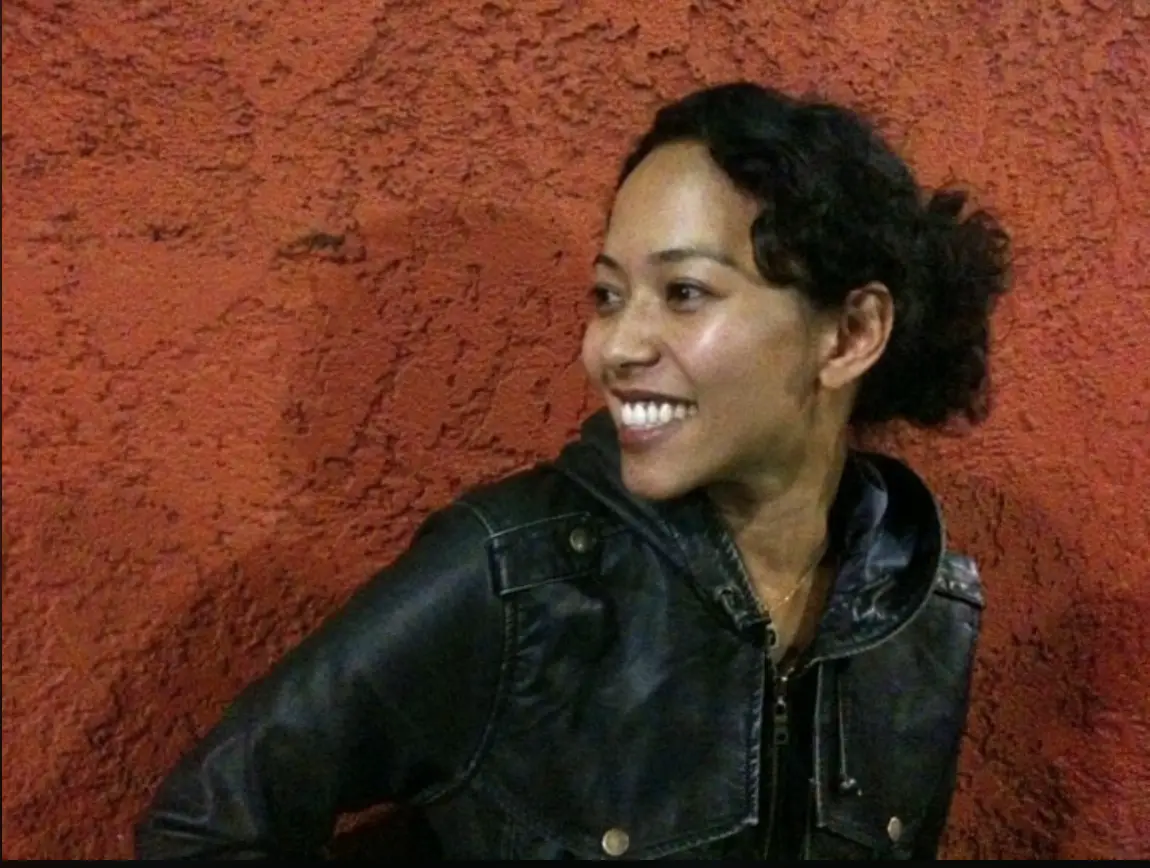
What is your heritage?
Mixed Race, 1/2 Japanese
What is the significance of Asian American and Pacific Islander Heritage Month, for you?
AAPI Heritage Month is a time where society can collectively celebrate the historic achievements of the AAPI community…and a month is not nearly enough. But, for this one month, a spotlight is rightly put on the artists, inventors, thinkers, and revolutionaries that hopefully inspire the next generation to push through, never hesitate to tell our history, and not have it put on us. We must own it in all its varied forms. The recent focus on anti-Asian hate crimes is imperative, and I hope people understand that it’s not just about COVID, but that it goes back generations and is a stain on what this country stands for. The Constitution is a work of art, a brilliant manifestation of the human mind and heart if/when applied to everyone.
How do you perceive or experience the relationship between music and your AAPI heritage and identity?
It bears on me in so many ways – I swing back and forth like a pendulum on the subject. I’m a proud Nisei, and I grew up exasperated, seeing the appropriation and miscommunication of our community played out in pop culture trends and caricatures as if Japanese culture existed in cartoon-like figures. But, at the same time, I understand how the awareness of Japanese subcultures made people curious to learn more. I was lucky to learn about our history, music, food, language, art, and more as part of my everyday experience; to see Japanese street fashion in hip-hop or hear Japanese phrases in lyrics still makes me smile. But, then, there’s a dangerous truth that all of this disguises: a real lack of authentic representation in music. There is so much diversity in the AAPI communities, but we often get typecasted and relegated to some predetermined, lazy narrative created by the outside gaze. Not every Korean-American artist should be marketed to K-pop fans because of a hyphen. Don’t get me started on the hyphen or the word “exotic.”
How do you feel the music industry can improve, when it comes to representation, inclusion, and diversity?
It’s simple: representation, inclusion, and diversity, not just of the artists that are signed and promoted, but by the staff that gets hired to promote them. I’ve spent my whole life in the music industry, in some form or another. My father is a renowned musician, and I spent my childhood in the studio, at concerts, etc. As an adult, I’ve spent my whole career as a publicist for various record labels. While it has gotten significantly better over recent years, there’s still so much room to grow by continuing to hire and promote people with diverse backgrounds. Truth: Asian-Americans are the fastest-growing racial population in the US. The industry needs to follow suit.
Name one or two AAPI artists who have had a significant impact on you, and why they've had that impact.
The talented Run River North. I was lucky enough to work with them during their time on Nettwerk and I learned so much from them. Unfortunately, there is scarcity when it comes to Asian-American representation in the indie-pop music scene. And when ethnicity becomes a focal point, it limits the lens in which people see the artist. Time and time again, the band handled the complexity of identity and lazy journalism with such grace and wisdom. I know I’m a better publicist because of them.
Lastly, what are you working on currently? Anything coming down the pipeline you’re excited to share?
“EVERYTHING. Please don’t make me choose between all the amazing music Nettwerk is set to release this year,” says the publicist.
•• ••
:: Anakim ::

What is your heritage?
Puerto Rican / Filipino; I hold dual nationality with the USA and Philippines.
What is the significance of Asian American and Pacific Islander Heritage Month, for you?
This month means bringing awareness to the cultures within the AAPI community to those who may not have had exposure or are not familiar with the community.
How do you perceive or experience the relationship between music and your AAPI heritage and identity?
To be quite honest, being mixed race Filipino and Puerto Rican I have never truly fit into a box. I believe my music is a direct reflection of that. I may produce music under the dance music umbrella, but I weave seamlessly between genres, much like how I weave seamlessly between the cultures I am a part of.
How do you feel the music industry can improve, when it comes to representation, inclusion, and diversity?
Highlighting artists within the AAPI community is not enough. We need more inclusion on festival lineups, club show lineups, Spotify playlisting, etc.
Name one or two AAPI artists who have had a significant impact on you, and why they've had that impact.
Chad Hugo of the Neptunes (Pharrel’s production partner) was the first Filipino I had ever seen in the music world. He inspired me to start making beats. He showed me that there can be a place for someone like myself within the music industry.
Laidback Luke is a Dutch/Filipino super DJ who showed me that becoming an artist/DJ was not as far fetched of an idea as I once thought.
Lastly, what are you working on currently? Anything coming down the pipeline you’re excited to share?
I’ve been working on a ton of new music lately and will be debuting most of that new music at Electric Zoo festival in New York this September, my first festival since before the pandemic began.
•• ••
:: Hollis ::
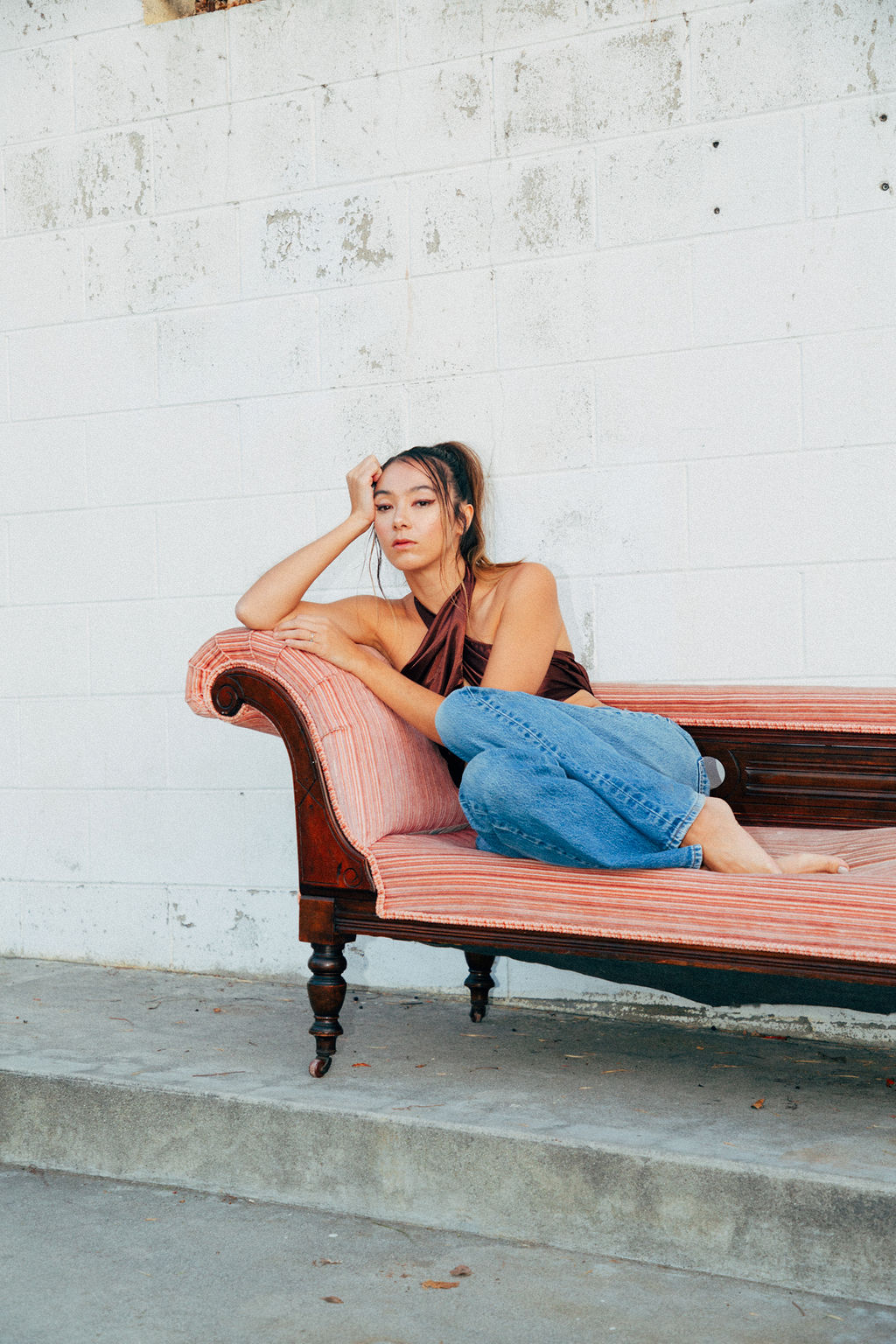
What is your heritage?
mixed Chinese American
What is the significance of Asian American and Pacific Islander Heritage Month, for you?
Two things come to mind. First, this month is an opportunity for those who aren’t of Asian and Pacific Islander descent to learn more about our history in the United States, both the triumphs and the challenges, and all the notable people and personalities across industries who are making waves today. I also think that this is a time for us who *are* of Asian and Pacific Islander descent to circle the wagons and think about how we’re living up to the needs of our community. This year obviously has been one of tragedy, where so much has come to the surface, and I am personally holding the urgency to support one another in more explicit and intentional ways than ever before. It’s also an opportunity to ensure that those who often get erased in the mainstream understanding of AAPI — namely Southeast Asian, South Asian and Pacific Islander folks — are centered and amplified.
How do you perceive or experience the relationship between music and your AAPI heritage and identity?
Me being a singer/songwriter and being Asian American are both so inextricable from my sense of self that I see them as entirely enmeshed. The pride I have from being Asian American comes both from carrying my mother’s heritage as well as the legacy of fierce and fearless Asian American activists and artists who have fought for civil rights and human rights throughout the decades. My artistic drive comes from grassroots community, and my desire to be a conduit for social change.
How do you feel the music industry can improve, when it comes to representation, inclusion, and diversity?
As an independent artist I’m less interested in reform or transformation of “the industry” and am more interested on how to help other independent artists not only understand and navigate the system that exists but establish themselves and grow their agency outside of it. We all have to pick our battles, so I am less focused on more “representation and inclusion” within the world of major labels and more focused on independent and emerging artists building their own audiences, protecting their intellectual property, and defining success for themselves. I hope to see more investment in education initiatives for people of color and women to both grow their musical skillsets and their business acumen so as to claim their creative power.
Name one or two AAPI artists who have had a significant impact on you, and why they've had that impact.
One of the first AAPI artists I encountered was a singer/songwriter named Vienna Teng who is a virtuosic piano player and gorgeous songwriter. Her music was both soothing and also sparked hope and possibility that I too could be a recording artist someday. I have a lot of hope about this next generation of recording artists who are making waves today. Folks like Dakota Camacho, Chong the Nomad, and G Yamazawa come to mind!
Lastly, what are you working on currently? Anything coming down the pipeline you’re excited to share?
I just released my single “Grace Lee” in honor of Grace Lee Boggs, as well as a merch collection with UPRISERS to raise money for the James and Grace Lee Boggs Foundation to continue Grace Lee’s legacy of inspired activism in her home of Detroit. Check it out, would be so appreciated! My next release will be the first single off my upcoming debut solo full-length.
•• ••
:: lewloh ::
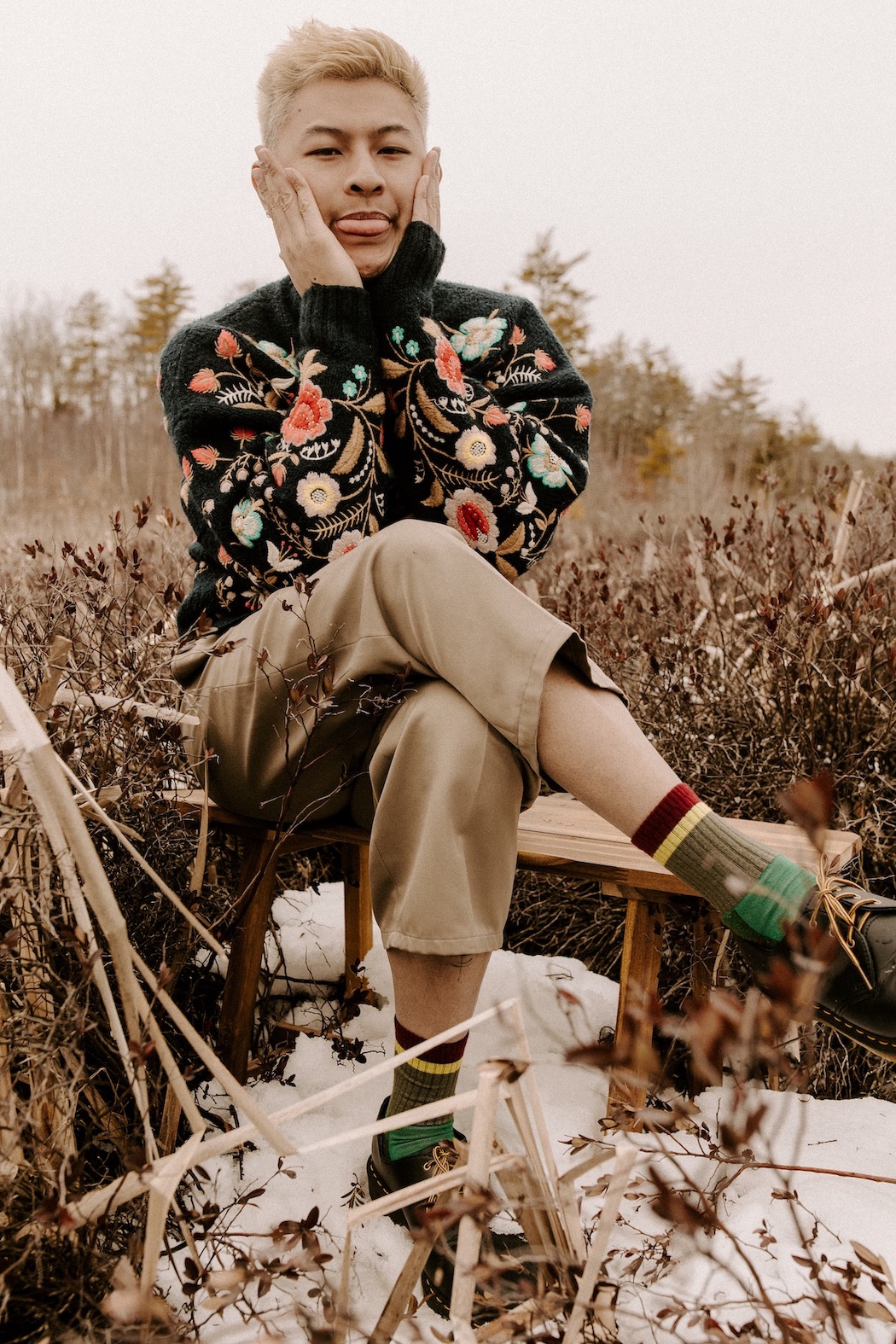
What is your heritage?
Singaporean Chinese
What is the significance of Asian American and Pacific Islander Heritage Month, for you?
The significance of this month is in taking the time to reflect on my identity, and evolve as new pieces of the puzzle surface. In an industry filled with white role models, I definitely grew up chasing a dream that wasn’t mine to chase – and I’m hoping that in the years to come, more and more Asian/Pacific Islanders get the opportunity to share their voices in mainstream media, so that our representation is more present.
How do you perceive or experience the relationship between music and your AAPI heritage and identity?
I take a lot of inspiration from the folk and singer-songwriter genre – and one recent observation when making a playlist for my long haul flights between Singapore and Boston (this flight is way too long), was that almost none of the artists I listened to currently were people who looked like me.
If music is my expression, then I’m hoping that I can be more influenced by people who have had similar cultural experiences, to help deepen my understanding of myself and where I fit in in the industry.
How do you feel the music industry can improve, when it comes to representation, inclusion, and diversity?
I’d like to see more festival lineups and playlists that intentionally put in the work to feature/include upcoming and new POC artists. It’s always nice to see the representation on the bill, but sometimes the same few artists are recycled and almost tokenized in the industry – when there are many other cool artists that could also be added to the mix.
Name one or two AAPI artists who have had a significant impact on you, and why they've had that impact.
Definitely the Asian American youtube era – David Choi, AJ Rafael, Kina Grannis, Mree
I remember in my teen years, finding this community and feeling so inspired by these artists. They all write songs honestly, simply but deeply, and that for me is the best equation for writing good music. Their videos also felt effortless, and that’s something I miss most about the social media space – everything feels too curated and surgical these days.
Lastly, what are you working on currently? Anything coming down the pipeline you’re excited to share?
I have a full-length album coming out later this year, and it will tell a personal story of an amicable departure from a loving relationship. In the meantime, there will be a few more single coming up – so look out for those!
•• ••
:: Rey Roldan, President, REYBEE, INC. ::
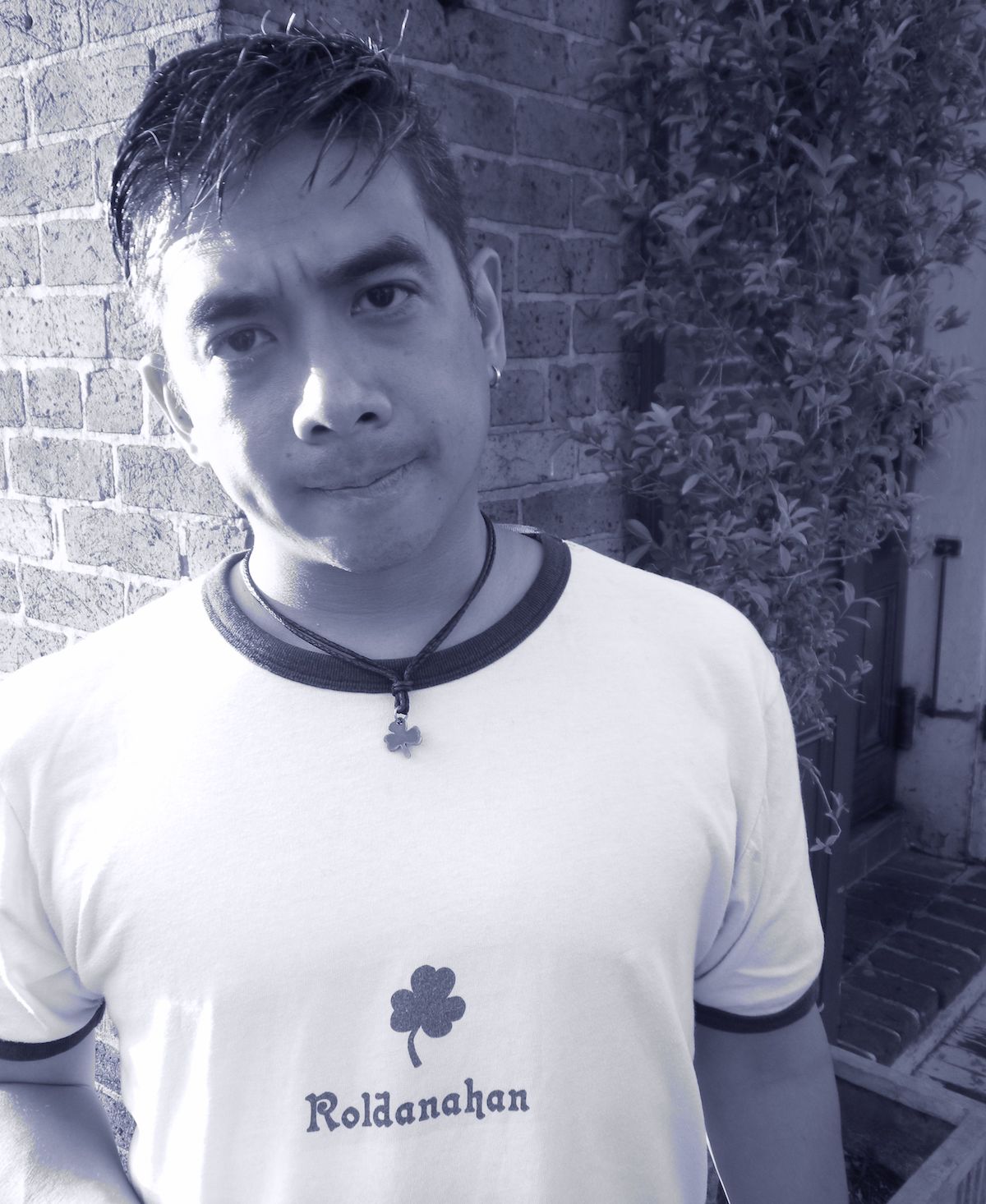
What is your heritage?
Filipino (but I tell people I’m Irish)
What is the significance of Asian American and Pacific Islander Heritage Month, for you?
As someone who has grown up mentally thinking he was Irish (I have traveled to Ireland nine times… studied Irish History and Art in College… and have created a whole myth about myself being Irish including saying that my last name is really “Roldanahan”), it never really occurred to me that I should celebrate my true heritage instead of leaning into a fantasy one.
But lately, I’ve heard from younger industry people who are AAPI who have said to me that I am an inspiration to them because they look at the success I’ve had and it gives them hope that they too can bust through obstacles and achieve their dreams. It never really occurred to me that my success as a publicist and journalist could give inspiration to others based on my country of origin and “ethnicity”. It’s still kinda weird for me to think that, but over the last few years, it has started to sink in.
In addition, working with Japanese-American artist Lyrics Born and Filipino-American DJ Cutso on their new song “Anti” denouncing anti-AAPI hate has given me a lot of perspective on the discrimination, prejudice and the increasing violence that is growing exponentially, and it’s given me a lot more reason to embrace my heritage.
So, AAPI Heritage Month is proving to be a good reason for me to take pride in who I REALLY am so I can start shedding off my fake lineage and take hold of my real one. I’ll still keep drinking Guinness though.
How do you perceive or experience the relationship between music and your AAPI heritage and identity?
To be honest, I never really connected my heritage to music. It hasn’t really moved me in either direction. I’ve always been rather neutral with my appreciation of music. I grew up in the punk, New Wave and Goth community where ethnicity was never an issue, so it infiltrated how I don’t really attach it to my listening.
How do you feel the music industry can improve, when it comes to representation, inclusion, and diversity?
There seems to be a lot of compartmentalism when it comes to musicians who are Asian. These days, the first instinct when seeing a group of Asians is to assume they are a K-pop or J-pop group which is a shame and often leads to the false belief that it’ll probably be disposable pop. It seems like because the connotation about Asian things is about disposability due to age-old and racist jokes about “Made in China” or the fetishism of Japanese pop culture, Asian art isn’t always taken seriously. It needs to be included more broadly within the music world and not put in an ethnic “bin.”
Name one or two AAPI artists who have had a significant impact on you, and why they've had that impact.
The AAPI artists who have had the biggest impact on me aren’t in the music industry but in the film world: Bong Joon-ho and Ang Lee.
South Korean director Bong Joon-Ho’s star rose prominently with the release of the blockbuster “Parasite” (2019) but his impact on me was far before that. I saw his 2006 film “The Host” when it first came out and I loved the darkly humorous tone he brought to the rather surprisingly touching monster movie. But since then, I had seen a handful of his other films such as “Snowpiercer” (2013), “Okja” (2017) and “Memories of Murder” (2003) and have really enjoyed his tightly-wound wit, his subtle orchestration of storytelling and his unflinching ability to marry humor with horrific events. It also helped me appreciate subtitled films more. I used to have a bit of a distaste for foreign films because I enjoyed being a passive viewer, and subtitles made you work for your enjoyment. I now seek subtitled films more because their storylines tend to be more intricate than many American and English-languaged films who tend to shy away from complexities in storytelling.
Ang Lee, on the other hand, was a director who I felt adapted a lot of Western ideas and situations and retold them with a nuanced Asian feel. It’s hard to describe but even though films like “Brokeback Mountain”(2005), “The Ice Storm” (1997) and “Ride with the Devil” (1999) were very much American stories, the precision of the emotional triggers and the overall ambiance of the tone feels very Asian to me. I had the pleasure of working with Ang Lee briefly when I worked on the music and soundtrack for “Crouching Tiger, Hidden Dragon” (2000) and his films were representative of the man – very calm, Zen-like, confident and assured.
Lastly, what are you working on currently? Anything coming down the pipeline you’re excited to share?
There are so many things that I’m working that I’m excited about… such as “The Problem of Leisure: A Celebration of Andy Gill and Gang of Four” (a compilation of Gang of Four covers by bands like Helmet, La Roux, IDLES, Gary Numan, Tom Morello/Serj Tankian), the debut album by rapper/model/painter and Thievery Corporation vocalist Racquel Jones, a new album by New Wave icons Information Society, and new music from Dark Mark vs Skeleton Joe by Mark Lanegan (Screaming Trees) and Joe Cardamone (The Icarus Line), among so many other great projects… With my PR firm, we always have exciting and often surprising projects to work on! We like being unpredictable.
•• ••
:: POLARTROPICA ::
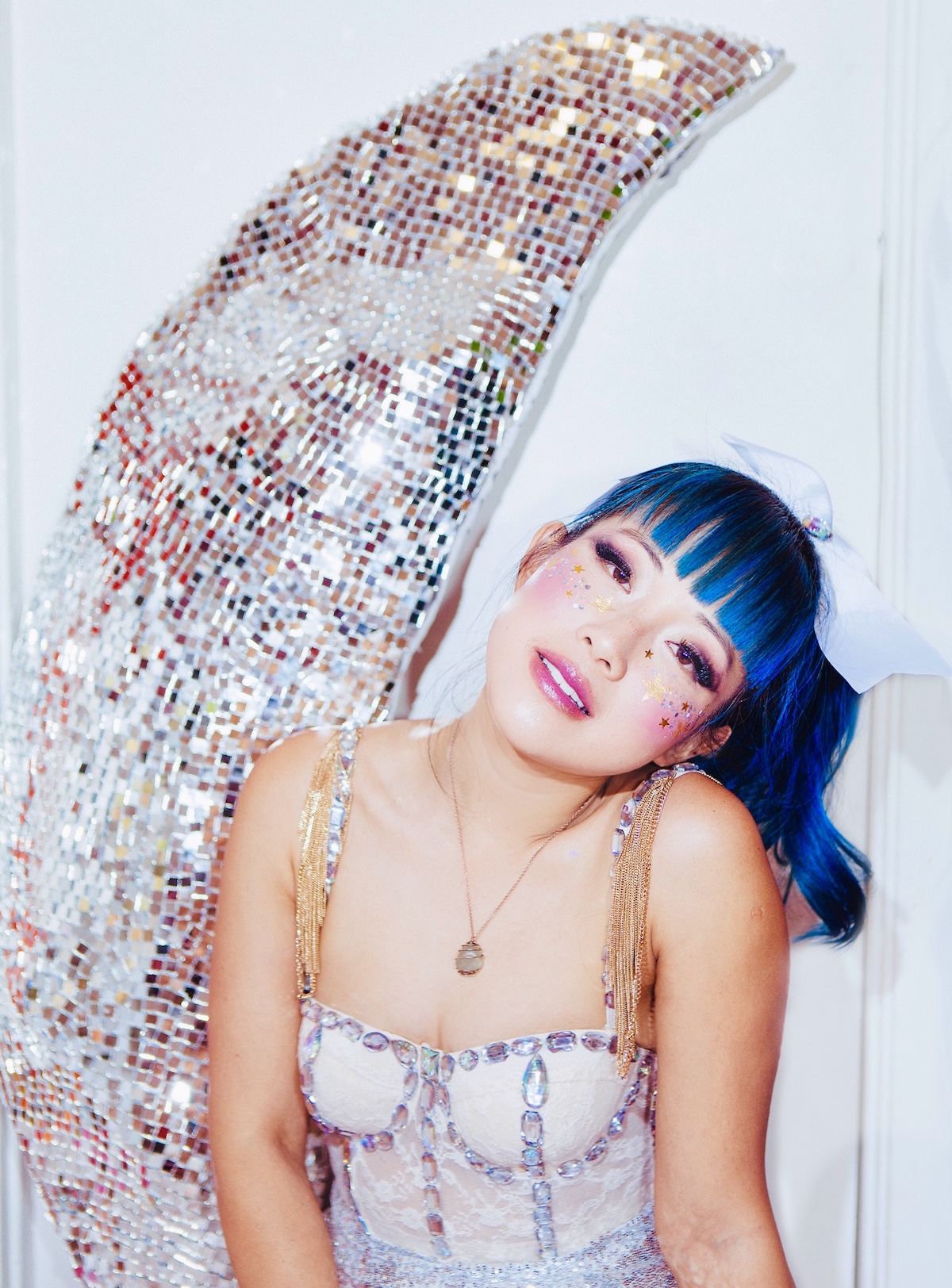
What is your heritage?
Taiwanese-American
What is the significance of Asian American and Pacific Islander Heritage Month, for you?
It’s a time of learning, reflection, appreciation, and celebration of my heritage and culture!
How do you perceive or experience the relationship between music and your AAPI heritage and identity?
My heritage and identity was honestly not at the forefront of my attention when I first started my band Polartropica, having grown up in California for most of my life. As I get older, I’m learning to appreciate culture and treasure my ancestry more and more. It has definitely been a journey.
How do you feel the music industry can improve, when it comes to representation, inclusion, and diversity?
Diversifying lineups for festivals, shows, as well as positions of leadership in music business can only bring forth a more lush, dynamic and vibrant industry. It will take active efforts for inclusion and accountability as companies to commit to uplifting and developing artists and leaders from underrepresented communities.
Name one or two AAPI artists who have had a significant impact on you, and why they've had that impact.
My good friend, director Yoko Okumura is so brilliant, and her vision in directing, writing and storytelling really opened up my world in terms of how I approach my music videos and even the way I write my music cinematically. Thao and the Get Down Stay Down ‘s music and artistry has been such an inspiration for me.
Lastly, what are you working on currently? Anything coming down the pipeline you’re excited to share?
We’ve been recording new music through quarantine that we will be releasing later this year! My girlfriend, nonbinary artist Lauren YS and I also started a microgrant fund and platform on IG under @squidtropica to build a community for queer, BIPOC artists from around the world. We’re also very excited to be playing our first live show outdoors of this year at the end of the month on 5/29 at Junior High’s new space in Los Angeles with Tangerine and Shiro that our friends Sid the Cat Presents and Sleezehog will be presenting!
•• ••
:: Didi + Ping (AKA Kristian Wang) ::
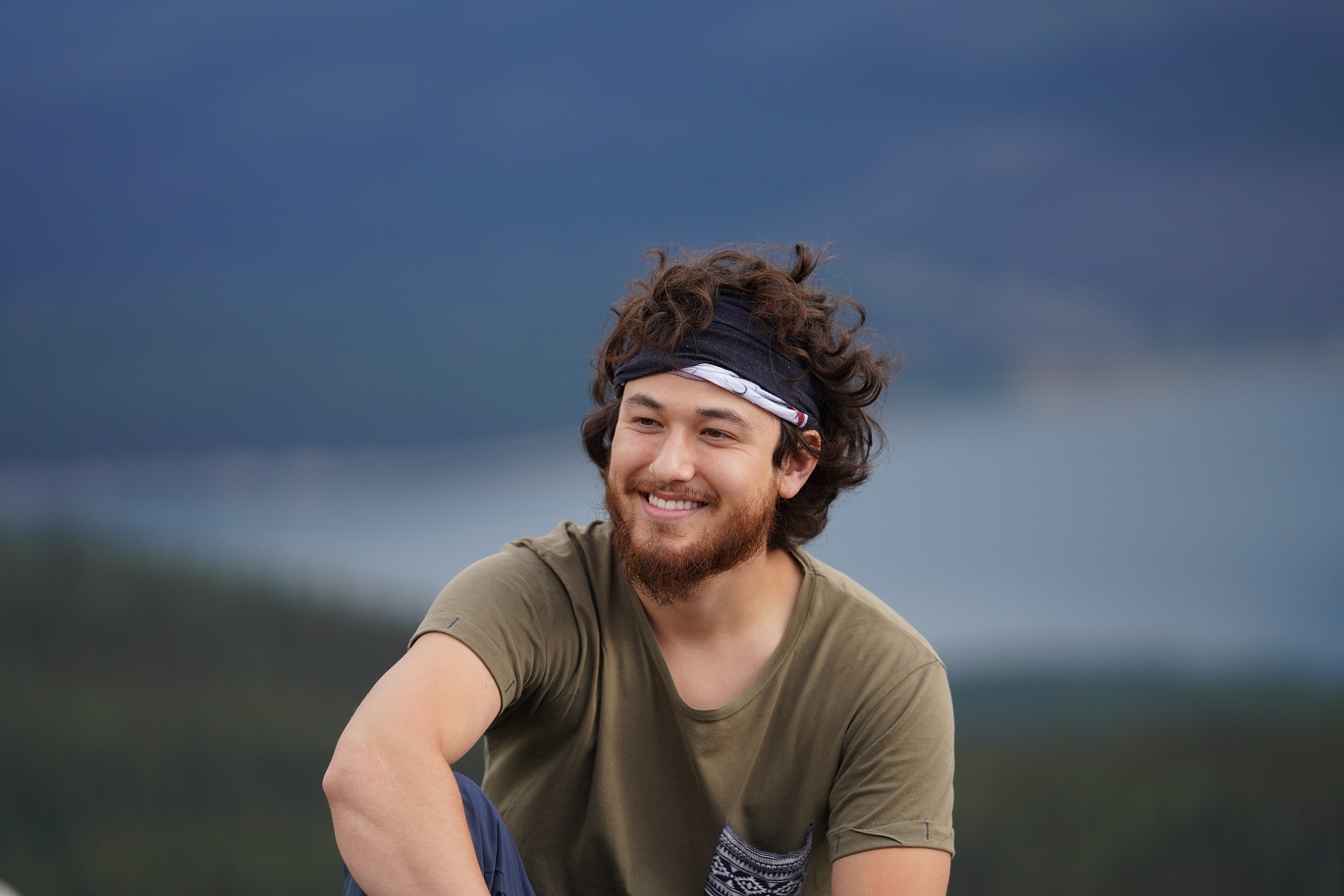
What is your heritage?
My mom is ethnically Chinese, and born in America. Her parents were both born on mainland China, and escaped with their families, when they were young, to Taiwan, during the Chinese Communist Revolution. They then immigrated to America, and later, to Canada. My dad is ethnically white British and white Scottish, and both his great grandparents immigrated to Canada, from Scotland and England. His family has been in Canada two generations longer than my mom’s. So ethnically, I am half Chinese, and one quarter white British, one quarter white Scottish, born and raised as a citizen of Canada!
How do you perceive or experience the relationship between music and your AAPI heritage and identity?
The amount of courage it must have taken for my grandparents to leave their homes in China, and make a new life in the West (North America) is hugely inspiring to me and is a driving element in the DD+P creative process of “exploring the unknown”. The adventure, fear, and sense of wonder when moving to a foreign land is something I haven’t yet experienced, but through the experiences of my grandparents, a lot of those emotions are channelled through my music.
How do you feel the music industry can improve, when it comes to representation, inclusion, and diversity?
Hmm…I don’t know. I haven’t studied the sociology and economics of the music industry in America, so I’m not confident I can give an answer to this question. For me, I feel blessed to be born during an era where music access is the best in the history of mankind. The internet is absolutely insane – since I was ten years old, I’ve been able to listen to all kinds of music, from all over the world, with a click of a button! One second, I’m listening to experimental electronic music from an artist in Japan, and the next, I’m listening to folk songs from Ireland. Websites like Bandcamp, SoundCloud, and even YouTube are amazing avenues for discovering passionate, talented and unique musicians, and I’m addicted to the exploration and discovery of all the music out there! I invite everyone to join me!
Name one or two AAPI artists who have had a significant impact on you, and why they've had that impact.
My mom and my cousin are two artists that have influenced me. My mom is a classically-trained opera singer, and raised me on a healthy dose of orchestral music, whether from the opera, theatre, or movies. Her love of music is one of the biggest reasons I’m in this at all. She’s been with me every step of the way, and her support is something I don’t think I could ever be able to fully repay. My cousin, whose artist name is “DZSTRKRFT,” is a guitarist and electronic producer. He really gave me the confidence to explore my own tastes – I’m classically trained in piano, and it can sometimes be difficult to let go of certain musical structures, and rules. The creative freedom he allows himself to have was a big push for me to go beyond my comfort zone and explore.
Lastly, what are you working on currently? Anything coming down the pipeline you’re excited to share?
I’m releasing my second single, ‘Take Flight,’ in a week and a half! There’ll be a formal announcement in the next few days on my socials. I’m really excited for this one – I know a lot of people wish our species evolved with the ability to fly, so this is my attempt to capture that feeling!
•• ••
:: Shihori ::
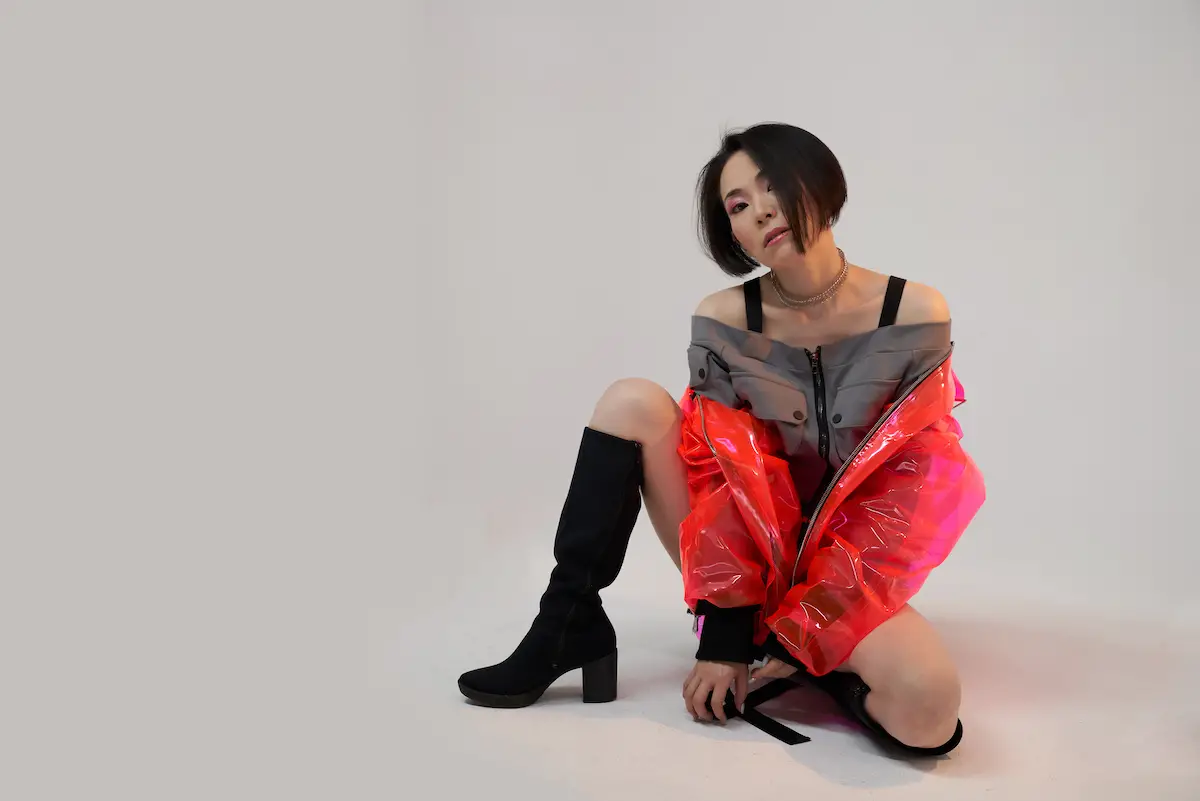
What is your heritage?
I have a Japanese heritage. A tradition we have is to visit shrines at the New Year to greet God and listen to the sound of the giant bell 108 times at midnight, we also eat buckwheat noodles at home with family members.
What is the significance of Asian American and Pacific Islander Heritage Month, for you?
I am still very new to the US and I recently got to know more about AAPI Heritage Month. We’ve been going through a tough time and it’s been an opportunity for me to learn about the social and racial problems here. It’s a great feeling to feel as one of the “Asians”, rather than solely as Japanese, it makes me feel like I’m part of a family. How amazing would it be if everyone could perceive it the same way and we could all be part of one big family?
How do you perceive or experience the relationship between music and your AAPI heritage and identity?
I am currently writing a new song about anti-racism, though it is something that I had never really faced in Japan, where it is quite mono-cultural. Music is really a wonderful way to express yourself and spread your message to the word in a peaceful, yet emotional way, without violence. And I appreciate that I have this peaceful weapon…my music.
How do you feel the music industry can improve, when it comes to representation, inclusion, and diversity?
I am still learning about the industry here but even in the last several years, I have been seeing a lot of change in the industry. It has been becoming more diverse, K-pop and Latin music are really growing, (I’ve also noticed that Japanese anime music is getting more popular here too!) This could really change things in a very peaceful way. Music and interest in other cultures can really destroy the borders and bring people together.
Name one or two AAPI artists who have had a significant impact on you, and why they've had that impact.
My biggest influence is the music producer Yoko Kanno. I have looked up to her since I was 16 because of her extreme creativity and energy. I actually worked with her when she chose my lyrics in a competition. That exciting collaboration inspired my creativity and was really encouraging. She really is my role model! Another big influence has been Marie Kondo, though she is not a musician she is a big role model. I first met her in 2009 before she published her first book, which later became a worldwide hit. She eventually started becoming bigger and bigger and became very popular not only in Japan but also in the US! It was so obvious to me that her mindset was special, and it has led her to unstoppable success. I often think of her when I’m going through tough times, it reminds me to always follow my heart.
Lastly, what are you working on currently? Anything coming down the pipeline you’re excited to share?
I’m releasing my new single “FIRE” on 5/14 and I’m currently working on my first full length album Mutation, which will be out later this summer! I have several new songs, including the anti-racism song I mentioned above, the album is going to be really diverse in its sound! I am actually currently in the process of “mutation,” transforming myself from a J-pop artist into an Asian Pop Artist in America and I’m excited to show the world!
•• ••
:: Victoria Park (Pictoria Vark) ::
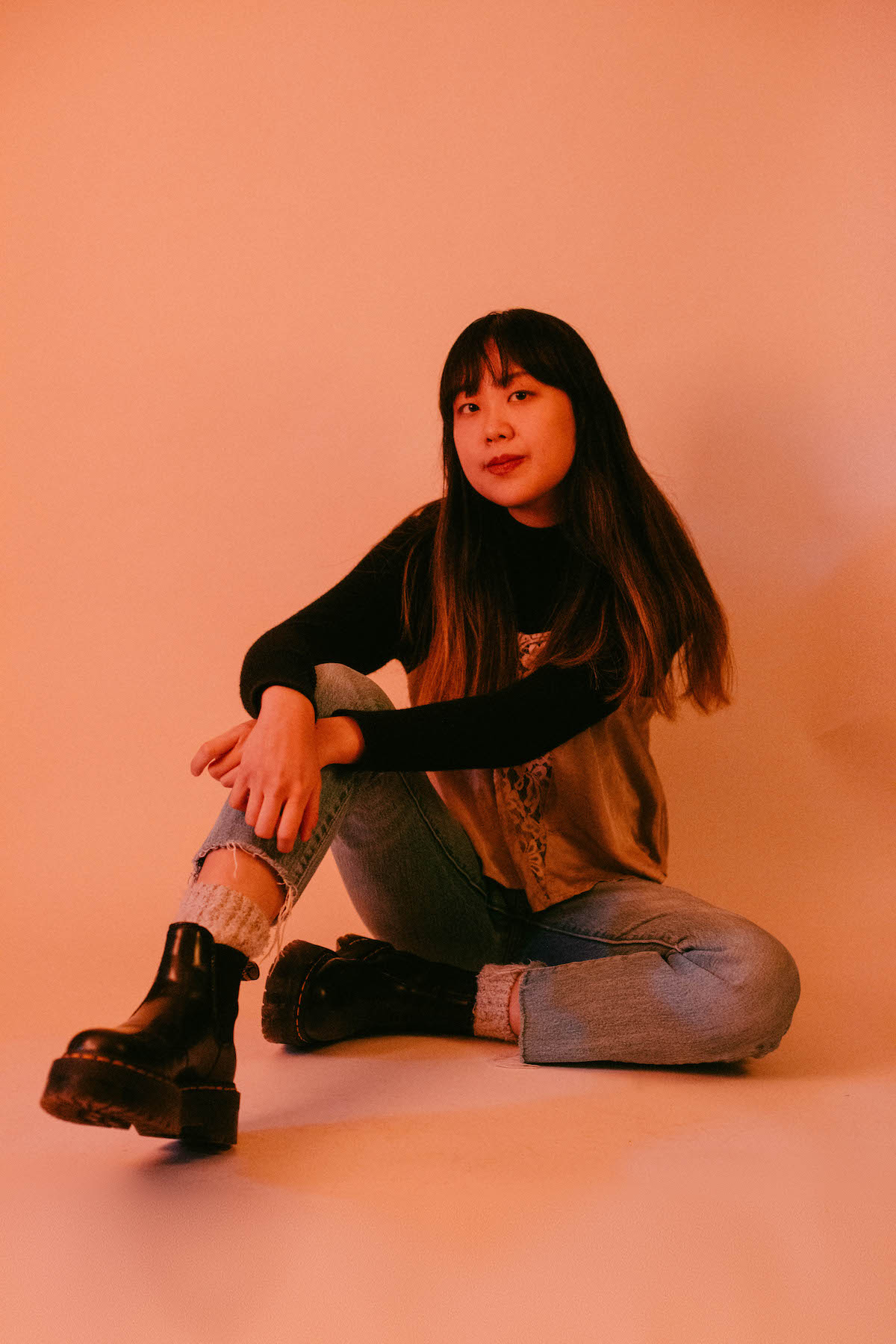
What is your heritage?
I’m Korean!
What is the significance of Asian American and Pacific Islander Heritage Month, for you?
I’ve had a complex relationship to AAPI Heritage Month. On the one hand, I’m grateful to have opportunities arise that bring marginalized identities to the forefront with intention and meaning. At the same time, I feel like things like “heritage months” make it easy to keep people like us in the margins when ongoing conversations and actions are needed to create meaningful and long-lasting change. People (namely white people) often look for convenient, voyeuristic, and short-lived narratives to uphold the power of their own whiteness. Sometimes “inclusion” is just another box.
How do you perceive or experience the relationship between music and your AAPI heritage and identity?
Even if I don’t directly speak to my Koreanness or experiences with white supremacy in my music, everything I do and write is still coming from that lens and point of view. And I like that it’s confusing to people–that when I play solo bass and vocal sets or sing about Wyoming or quitting music, it doesn’t fit neatly into people’s perceptions of East Asian women. Claiming as much agency as I can over how I’m represented feels significant in that way.
How do you feel the music industry can improve, when it comes to representation, inclusion, and diversity?
I think the most important change that could happen in the music industry is just sharing industry knowledge with artists from the margins. It’s so much more radical for artists of color, especially young and eager ones, to know how not to get screwed over by this industry and make smart decisions about their career than it is for there to be more representation on artist rosters and in corner offices.
Name one or two AAPI artists who have had a significant impact on you, and why they've had that impact.
Maya Stoner from Floating Room has been an incredible friend and support system through some especially hard times. Not only is their music so inspiring and challenging, but they just have a big heart and I’m lucky to know them. Ashrita Kumar from Pinkshift is also someone in the last year whose impact on both my personal life and the scene in general cannot be understated. Her vocals and lyrics are top notch and she’s done so much to amplify so many artists with marginalized identities. Extra shouts out to Katie Sin and Chris from Korean Indie <3
Lastly, what are you working on currently? Anything coming down the pipeline you’re excited to share?
I’m currently in the process of finishing up my first full-length album! I have some exciting things coming up in the end of May and June, but you’ll just have to wait and see what they are :~)
•• ••
:: Pat Lok ::
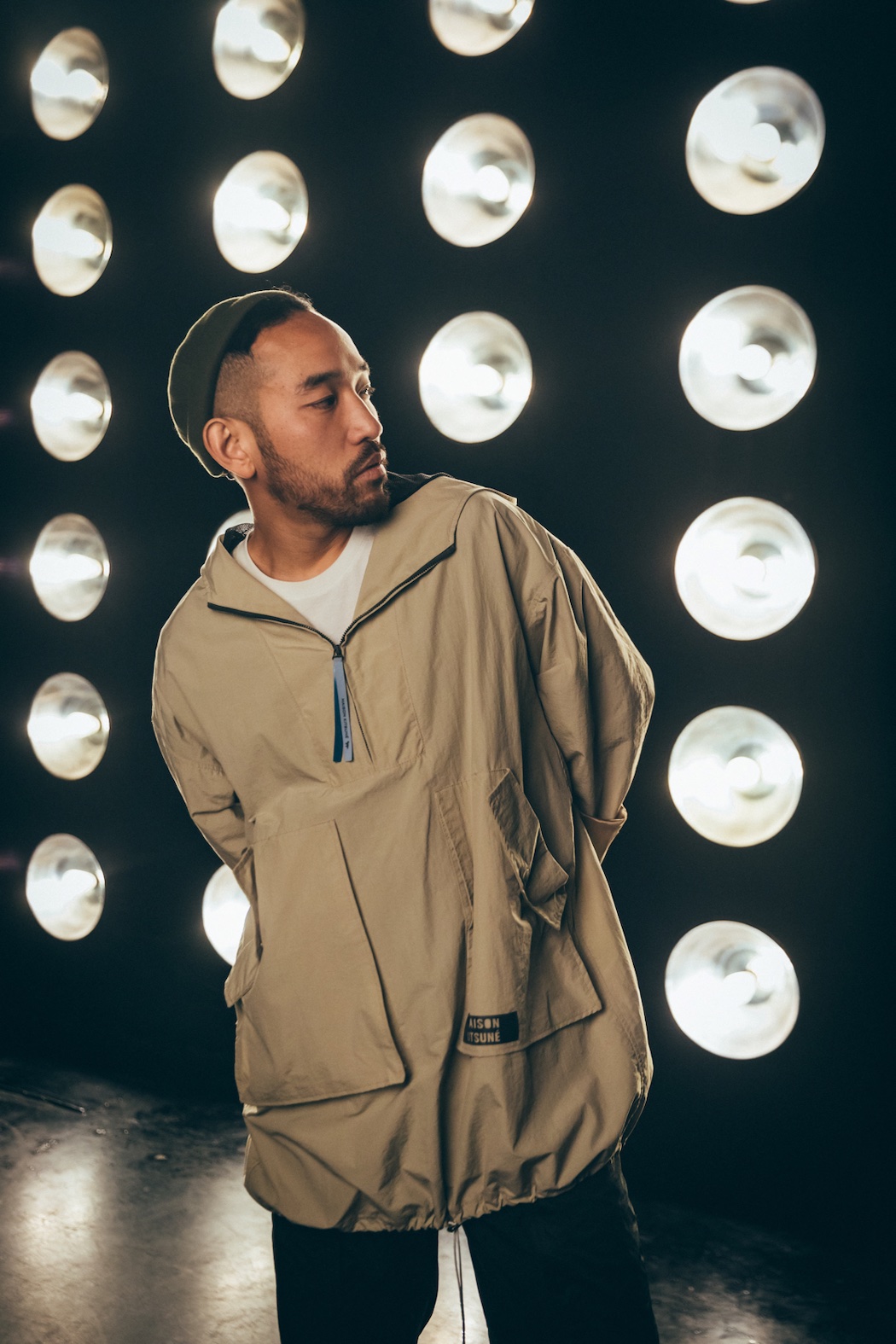
What is your heritage?
Singaporean Chinese
What is the significance of Asian American and Pacific Islander Heritage Month, for you?
As an immigrant like my parents before me – I’m originally from Vancouver Canada, now based in Los Angeles – I wear my ‘Asianness’ proudly. When I first started touring there were not many other role models to look up to (Steve Aoki and Laidback Luke come to mind) so I always knew I had to *bring it* a bit harder to prove I belonged on stage.
How do you perceive or experience the relationship between music and your AAPI heritage and identity?
In my recent EP ‘Gone is Yesterday’ I was heavily inspired by ancient Chinese legends, the stories my grandparents told me as a child. I created a short animated film and wrote the majority of the record anchored in these classic aesthetics, while combining it with a 90s japanese rpg video game style. It’s one of the projects I’m most proud of!
How do you feel the music industry can improve, when it comes to representation, inclusion, and diversity?
There are increasingly more Asian artists making waves these days at the highest levels – which is a real step forward. We still need to see more Asian artists represented on show bills, festivals, and in traditional media.
Name one or two AAPI artists who have had a significant impact on you, and why they've had that impact.
Onra: His Chinoiseries albums showed me that you could take classic Asian sounds and turn them into modern classics.
Tokimonsta: She has worked incredibly hard to achieve so much! She’s a role model for so many producers, building her career organically, brick by brick rather than chasing trends.
Lastly, what are you working on currently? Anything coming down the pipeline you’re excited to share?
‘So Fine’ – new single w/ Party Pupils out May 14 on Club Sweat!
— —
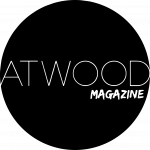
Connect to Atwood Magazine on
Facebook, Twitter, Instagram
Discover new music on Atwood Magazine

